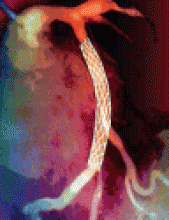- © 2007 Canadian Medical Association or its licensors
In the eyes of Canadian physicians, the health care system needs a few reforms, but is essentially functional. Only 3% believe it should be scrapped or completely overhauled.
By contrast, 42% of German physicians and 16% of US physicians think their national health care systems are all but completely dysfunctional (Table 1).
Table 1.
Those are among a series of intriguing findings from a survey of more than 6000 doctors in 7 countries (Canada, Australia, Germany, the Netherlands, New Zealand, the UK and the US) conducted by New York–based private foundation the Commonwealth Fund as part of its 2006 International Health Policy Survey, and published on the e-journal Health Affairs.
The survey also indicates Canadian physicians are far less likely than their international counterparts to have incorporated electronic medical records into their practices and have a relatively unfavourable impression of aspects of primary patient care, including wait times to see specialists and obtain tests; after-hours physician availability; the use of multidisciplinary teams to treat chronic illness; and the provision of financial incentives to improve quality of care.
The extent of non-involvement in electronic medical records is breathtaking. Only 23% of Canadian physicians now use electronic records, as compared to 28% in the US, 42% in Germany, 79% in Australia, 89% in the UK, 92% in New Zealand and 98% in the Netherlands.
Asked whether their current record-keeping could generate a list of patients who are due or overdue for tests or preventive care, some 52% of Canadian doctors said it would be difficult, while 38% said it couldn't be done. As a corollary to that, some 68% of Canadian doctors do not send out reminder notices for preventive or follow-up care; some 56% are not alerted about a potential problem with a drug dose or interaction; and 53% aren't alerted that they need to provide patients with test results. Similarly, 74% of Canadian doctors do not routinely receive data about clinical outcomes (such as glycemic control levels in patients with diabetes), and 87% never receive surveys regarding patient satisfaction. In all of the above instances (with 1 minor exception being test result alerts in the Netherlands), Canadian physicians lag well behind their counterparts in the other 6 nations.
Similar results and international variations are found in virtually every aspect of the survey. Those indicate that Canadian physicians
• conduct fewer clinical audits of care (45%) than in other nations. The UK leads the way at 96%;
• believe their patients experience long wait times to see specialists (73%), as compared to a low of 31% in the US and a high of 82% in New Zealand;
• believe patients experience long wait times for diagnostic tests (51%), as compared to a low of 6% in Australia and a high of 57% in the UK;
• have arrangements for after-hours care by another physician or a nurse so that people can avoid a visit to an emergency department (47%), as compared to a low of 40% in the US and a high of 95% in the Netherlands;
• routinely use multidisciplinary teams to treat chronic illness (32%), as compared to a low of 29% in the US and a high of 50% in the Netherlands;
• often use evidence-based treatment guidelines issued by medical societies or government to treat patients with common conditions (70%) and complex or multiple chronic diseases (56%). That compares to a low of 36% in Germany and a high of 72% in the Netherlands, with regard to common ailments, as well as a low of 41% in New Zealand and a high of 64% in the UK for complex conditions;
• routinely give patients with chronic diseases written instructions on how to manage care at home (14%), as opposed to a high of 63% in Germany.











